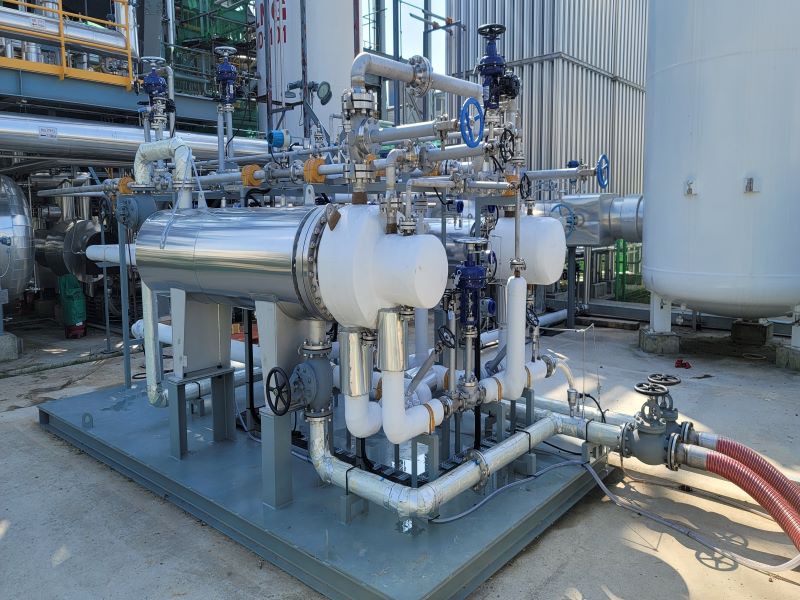
Norwegian classification society DNV has awarded approval in principle (AiP) to Korea Shipbuilding and Offshore Engineering (KSOE) and its subsidiary Hyundai Heavy Industries (HHI) for their new waste heat-derived liquefied natural gas (LNG) fuel supply system.
The new system, dubbed Hi-eGAS (Hyundai High Efficient Gas Supply System), has been developed for 300K very large crude carriers (VLCC).
Hi-eGAS features a safety system that allows the engine to continue operating normally in case of an incident with the LNG fuel system. These incidents can include forcing vaporiser leakage and failure of the pressure or temperature control valves.
The system uses a new heat exchanger with low freezing risk that was developed by KSOE and HHI in collaboration with domestic equipment firms.
In 2021, KSOE successfully concluded a 24-hour demonstration test at the LNG Cryogenic Mechanical Testing Certification Centre, at the Korea Institute of Machinery and Materials, under the exact conditions as the maximum fuel supply for large ships.
KSOE vice-president Byeongyong Yoo said: “KSOE and HHI are leading the development of reducing carbon emissions and high-efficiency ship technology that increases the competitiveness of LNG fuel propulsion ships.
How well do you really know your competitors?
Access the most comprehensive Company Profiles on the market, powered by GlobalData. Save hours of research. Gain competitive edge.

Thank you!
Your download email will arrive shortly
Not ready to buy yet? Download a free sample
We are confident about the unique quality of our Company Profiles. However, we want you to make the most beneficial decision for your business, so we offer a free sample that you can download by submitting the below form
By GlobalData“I believe that AIP of this technology, proven by DNV, can provide more confidence in stakeholders’ choices and support shipping industries to lower fuel price and CO₂ emissions.”
According to DNV, LNG is anticipated to serve as a primary fuel for ships as the International Maritime Organisation’s environmental requirements become more stringent.
In January, KSOE reportedly received contracts valued at $1.39bn to build ten vessels.







